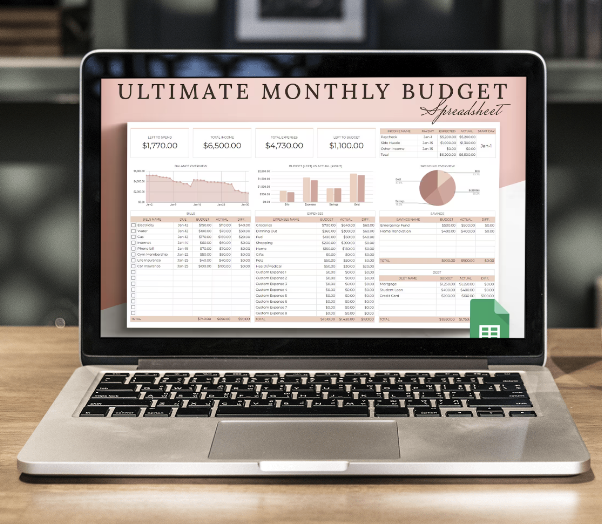Similar to outlining goals for physical, spiritual, and mental-emotional well-being, we must also practice good habits for financial health. As the new year approaches, consider how you might adopt the following 10 tips to bulk up your wallet and help you become more financially responsible.
- Get realistic about what you’re spending and saving
As a personal trainer, nutritionist, and financial planner, I’ve worked with clients from all walks of life with various goals who all have one thing in common: they live in denial about the impact of their habits. A gambler convinces himself it’s “not that bad,” as does an emotional eater when they binge on sweet foods. At the end of the day, each of us has to get real about what’s eating us up inside and why we are choosing to avoid what’s right in front of us. Using a spending planner (which I give to all new, prospective clients), we are able to see what’s really coming in and going out the door every month. From there, we can move forward. - Build your emergency fund
I understand that it may be difficult to save right now with rising food costs and difficult work scenarios, but replenishing an emergency fund (ideally in backed currency, such as gold, silver, or certain cryptocurrencies), is advised. As soon as possible, start tucking away funds in a tax-proof, litigation-proof environment (such as a whole life insurance plan) to create a secure environment to grow liquidity. - Start investing!
Speaking of growing your funds in a tax-free, litigation-proof environment, now is a great time to discuss investment opportunities with our team. We prefer to connect our clients to guaranteed growth environments which will ensure you and your loved ones have their needs met down the road or in the event of an unexpected crisis. - Start budgeting and track your expenses
If you don’t already, begin budgeting and track your expenses. The sooner you gain transparency on what’s earned each month and what’s being spent, the sooner you’ll gain control over your finances and be able to grow your wealth. Click here for our guide on how to create a budget. - Pay off your student loans
My team and I can teach you how to eliminate big debts, including student loans, in under 9 years or less. Making a plan to pay off your student loans is all about getting organized. Knowing who you owe, how much you owe, and how you will afford to pay off your loans should be your first priority.
If you are having trouble trying to fit your student loan payment into your budget, it’s worth it to give your lender a call. Often, you can work out income-driven repayment plans or deferments that can lessen the financial blow of your current loan payments. - Consider investing in yourself through a whole life plan
Rather than invest in a 401K or risk your money on the market, consider the value a whole life insurance plan can offer. As you may have learned in educational events hosted by Black Hills Financial Planning, the amount claimed by the government off of a 401K can dramatically strip the payout. Furthermore, guaranteed environments like a whole life plan (5%) are comparable to risky ventures on the market. The structures also allow tax-free accumulation, which 401K plans do not. Schedule your consult today to learn more. - Build your credit
If you’re looking to build your credit, try this trick: keep a SMALL amount ($75-$100) of revolving debt on a card and pay off everything but that amount each month. This shows lenders that you can manage a small amount of debt; as a result, you are likely to build your credit faster. - Consider estate planning
A will just isn’t enough if you’re hoping to help your loved ones avoid probate. While it might seem like a good idea, the process of probate (where everything in your name is determined to go to someone else by a judge) is expensive, lengthy, and entirely out of your and your family’s control. With a living trust, you can pre-probate the process and avoid the cost of probate entirely. Furthermore, you can ensure your family avoids capital gains. And, you’ll guarantee that you have all of the documents in place in the event that you or your spouse becomes incapacitated. It’s important stuff, so get in touch today to learn more. - Cook more meals at home
No surprise, cooking at home saves $$! The more you cook from whole, unprocessed ingredients, the healthier your diet will be and the more money you will save. Win-win. Get free healthy recipes at www.life-in-bloom.com. - Define your long-term financial goals
Until you know where you want to go, it can be difficult to know how to “get there.” Spend time reflecting on your long-term goals. How much money do you want to retire with? How much debt do you need to pay off before the age of 65? What goals do you want to achieve and how much money will they cost? Get real, and work your planner to create a plan.
I hope this list helps you start the new year off on a great tune. Get in touch today for your FREE consultation with our firm.







